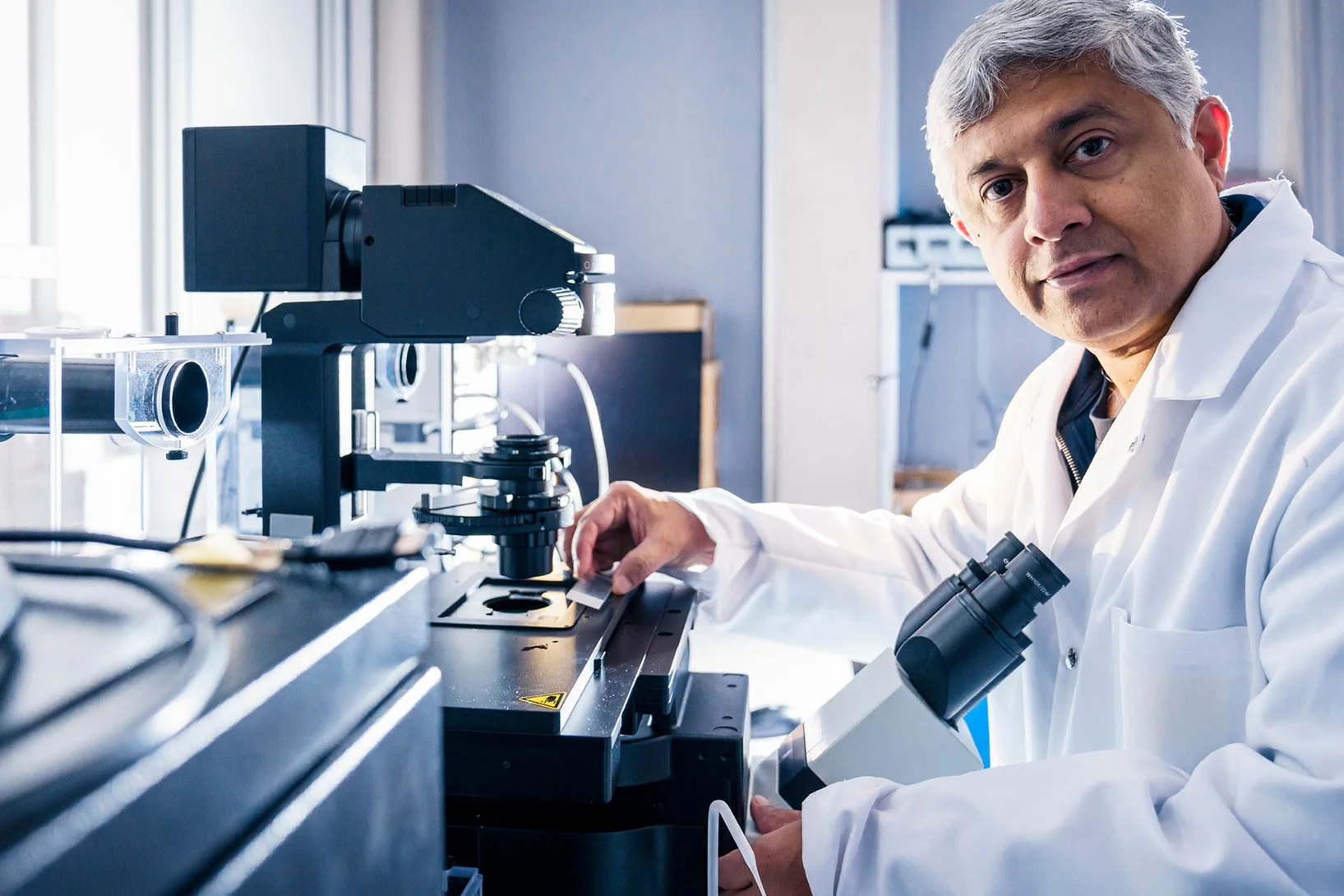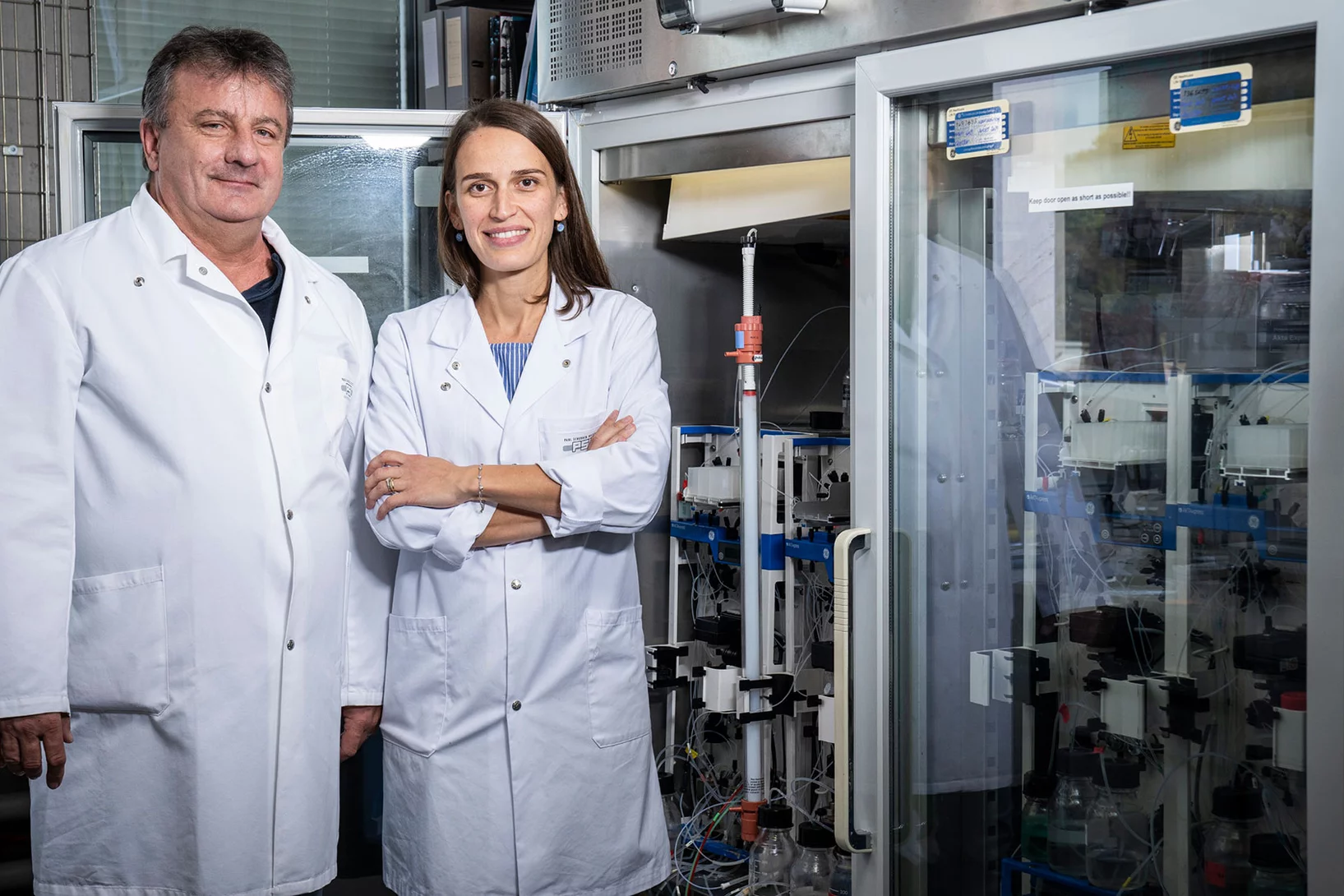New methods for diagnosis and therapy are at the centre of medical research and development at PSI. In cancer diagnosis, the focus is on early detection. Basic research using the latest methods leads to the development of innovative therapies. PSI works very closely with universities, clinics and the pharmaceutical industry.
New approaches to diagnosis
Early diagnosis is essential in the case of cancer. The earlier treatment is started, the greater the chance of a cure. At PSI, researchers are developing new diagnostic methods to detect tumours at an even earlier stage than before. These include technical procedures such as phase-contrast X-rays for the early detection of breast cancer as well as the targeted use of blood cells for diagnostics. In addition, radioactive substances for the early detection of the smallest tumours are being developed and researched at PSI. The rapidly decomposing radioactive drugs are produced directly for diagnostic use in clinics in our own pharmaceutical laboratory.
On the way to light-controlled medicine
PSI researchers have elucidated the structure of special photoreceptors.
Breast cancer classification using AI
Researchers at PSI and MIT are developing a new approach, which combines imaging and artificial intelligence to improve the staging of breast cancer.
Enabling early detection of cancer
PSI researchers develop a fundamentally new method for early detection of cancer.
Innovative approaches in therapy
PSI radiopharmaceuticals are also used in the treatment of cancer. In particular, very small tumours that are distributed throughout the body cannot be treated with conventional radiation therapy. For treatment, PSI combines particular biomolecules with a radioactive atomic nucleus to create therapy molecules. These can selectively and specifically find and destroy tumour cells.
In addition to radiopharmaceuticals, PSI's medical research and development portfolio also includes therapies to combat the symptoms of ageing and innovative approaches to pain treatment. Last but not least, the so-called spot scanning method – a particularly precise and sensitive method of irradiation with protons – was developed here at PSI over twenty-five years ago. Today, doctors around the world use it to treat cancer.
Tumor therapy with fast protons
Patients with tumours have been treated at the proton therapy facility at PSI since 1984. This facility, developed and built on the PSI site by the Institute's own experts, is unique in the world. Its irradiation technique makes use of the inherent advantages of protons, which allow the selective destruction of a tumour while optimally protecting the healthy tissue surrounding it. In consultation with the Centre for Proton Therapy at PSI, doctors can refer patients to PSI for treatment.
Are you a patient, family member or doctor and would like to find out more about proton therapy at PSI? Then please follow this link for further information.
“Even more cancer patients could benefit from proton therapy”
A newly published book describes how life-saving proton therapy was developed at PSI. Damien Weber explains why the full potential of the method has not yet been exploited.
New approaches to cancer treatment
The ETH/PHRT-funded clinical studies “RAPID 01” and “PROGNOSTICS” have successfully started recruiting patients.
Tumour irradiation, individualised daily
A PSI feasibility study shows: Even in everyday clinical practice, treatment can be adapted daily. Thus, the tumour will always be treated with exactly the right dose of radiation.









